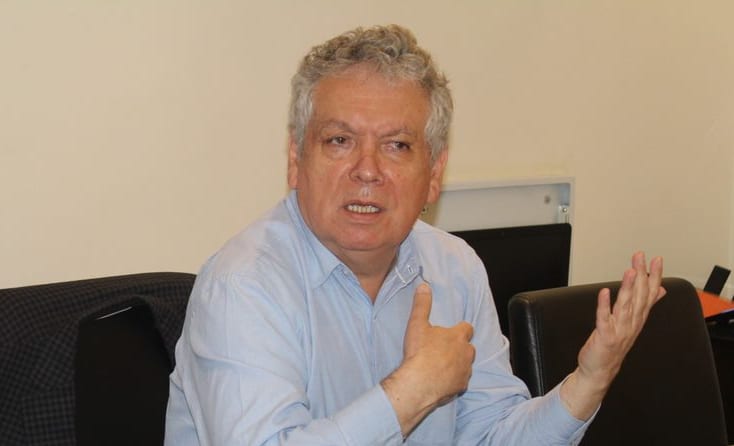ICP Ingeniería and Eurochile develop a project to create a protocol of good practices in circular economy for the infrastructure sector
The objective is to create a tool that delivers added value to the company’s proposals to its clients, incorporating the circular economy from the project engineering design process. It will be implemented with a practical case of reuse of hydroelectric power plant gates, which also allows environmental benefits, cost savings and raw material.

For the circular economy to be installed in the country, it must go from speech and theory to concrete application in production processes. Although there are already advances, there are some areas where its installation seems to be more complex, such as the engineering of large infrastructure projects and civil works, where changing the way things are done can take more time. And it is precisely there where ICP Engineering seeks to generate changes from the design of the projects.
An interest that arose from its incorporation to the Eurochile Circular Economy Working Group after an invitation from the Foundation’s Area of Technology Transfer and Circular Economy, and which today translates into a specific project that will be developed with the financial support of Corfo: the creation of a protocol of good practices in circular economy for this industry.
“The objective is to identify instances within the design of the proposals, as in a transversal way in infrastructure projects, where requirements aligned with the circular economy can be implemented, as a tool that gives added value to our proposals and to customers,” explains Fernando González, general manager of ICP Ingeniería.
The idea, he adds, is “to have a methodology that allows us to evaluate the circularity of the design solutions generated by our company and to transfer good practices of the circular economy to the technical teams in our organisation.”
This protocol, which will be co-built by ICP Ingeniería and Eurochile, will be based on ecodesign and will seek to address the instances where improvements can be implemented that add value to the projects. And it will also be done with a practical case: the design of a diversion tunnel for a hydroelectric plant where gates that are currently in use in another project must be used.
In other words, a practice of reusing components that will imply rethinking and reducing the materials required for the work, and which is expected to allow the company to increase its chances of being awarded to tenders by considering the application of circular and sustainable measures within its service offers.
“The advantage of including the reuse of equipment included in the works of hydroelectric power generation projects in very early stages, allows us to design civil works considering this criteria,” explains González. Are there similar experiences? “We are not sure that there is a specific methodology to measure the circularity of engineering solutions at the level of infrastructure projects, which is the objective pursued by this project,” he adds.
This will not only increase the competitiveness of companies through the development of a differentiating tool based on ecodesign, but will also help to reduce the negative environmental impacts of infrastructure projects and increases the efficiency in the use of raw materials, which definitely delivers greater value to the customer.
Today, says the general manager of ICP Ingeniería, there are many opportunities to apply concepts of the circular economy in the design of equipment and energy generation work. And for this reason, the project’s commitment is also install a new way of thinking that modifies the way of approaching the design process of the infrastructure sector.
Therefore, explains Fernando González, among the things they seek to install with the development of this joint project, is to transfer good practices of the circular economy to the design process and add value by generating solutions with a low environmental impact, reduce waste and consider in its engineering solutions the use of recycled materials, as well as equipment from other projects. “These can be reconditioned and used again. In a project under development, we are reusing equipment from another project and with this solution it is possible to reduce the total cost – of the equipment and accessories- in a range of 25% of the value with respect to the solution without reusing equipment ”, he says.
“The work with Eurochile – adds González – has been very positive because it has allowed us to add new knowledge of circular business models, and expand our networks with companies in Europe that have implemented circular business models. This protocol will be very positive for our value proposition, given that in the tenders we participate, there are international companies that are already applying models to measure the circularity of suppliers. This will surely allow us to make a difference”.
